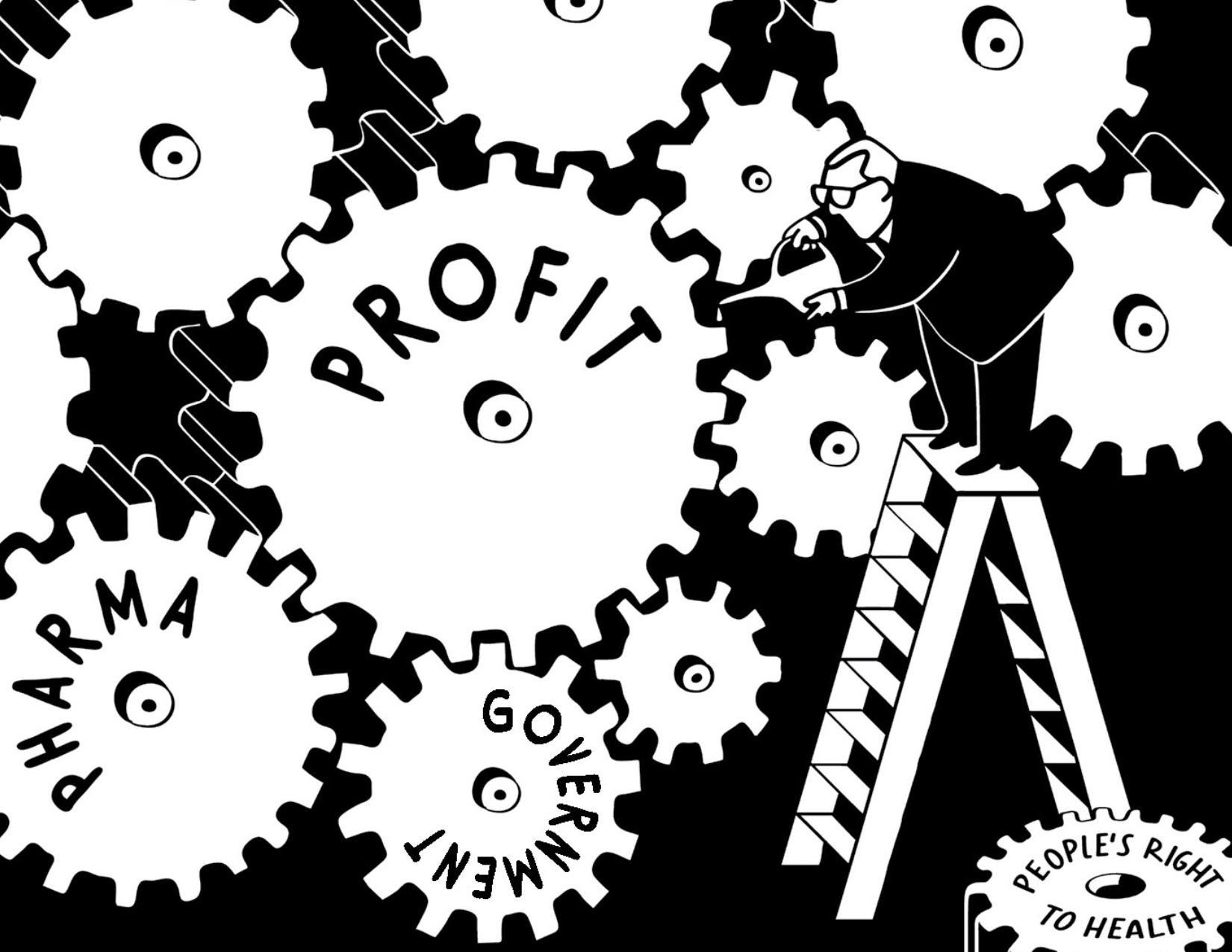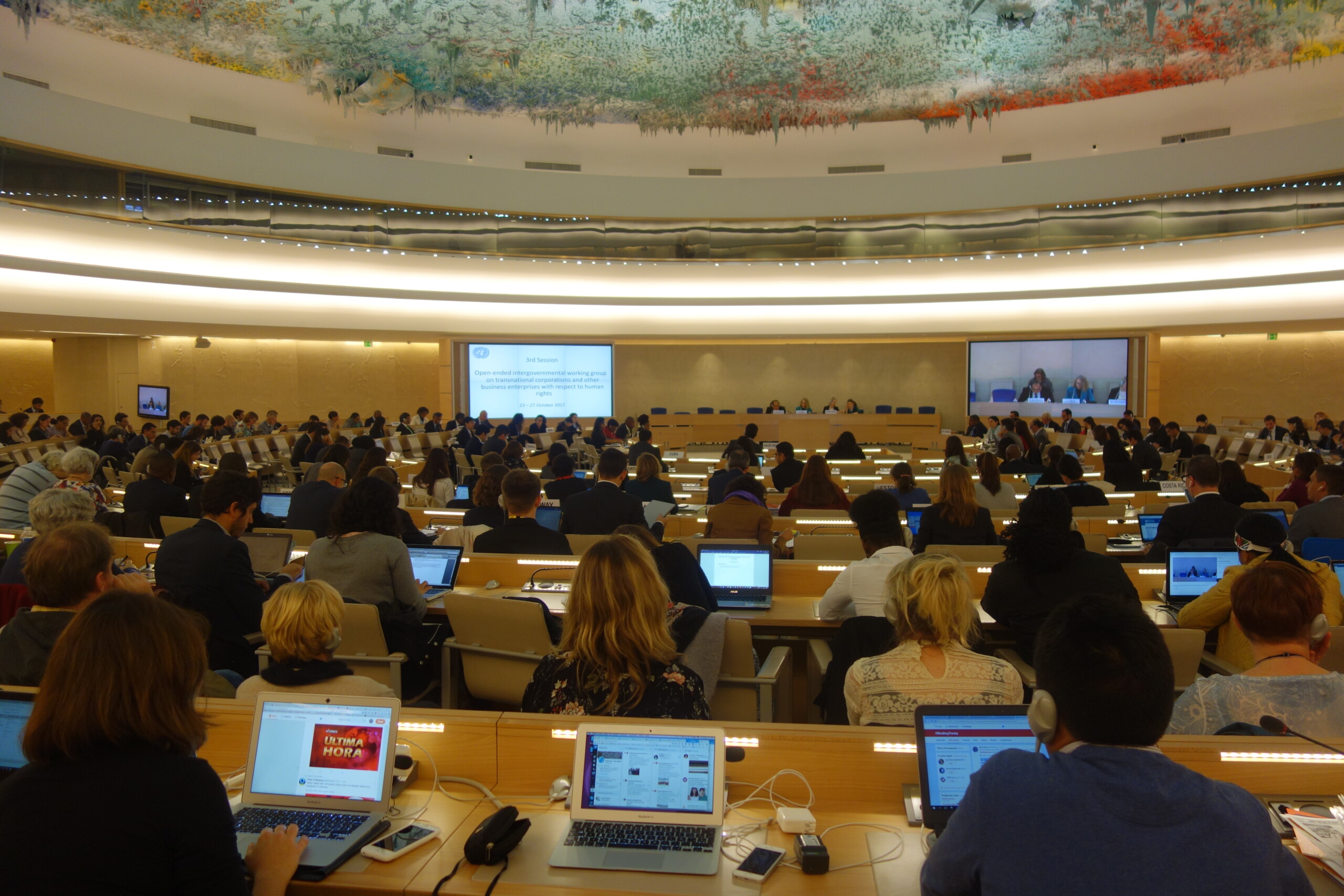On 14 October 2021, six UN experts sent a total of 44 letters to G7 and G20 States, the European Union, and the World Trade Organization, as well as pharmaceutical companies calling for urgent collective action to achieve equal and universal access to COVID-19 vaccines.
The recipients of the letters include: The European Commission, US, UK, Germany, Canada, Pfizer, Moderna, AstraZeneca, Johnson & Johnson and the World Trade Organization (WTO)
The letters were signed by: the Chair of the Working Group on business and human rights, Mr Surya Deva; the Special Rapporteur on the Right to physical and mental health, Ms Tlaleng Mofokeng; the Special Rapporteur on extreme poverty and human rights, Mr Olivier De Schutter; the Special Rapporteur on the right to development, Mr Saad Alfarargi; the Independent Expert on international order, Mr Livingstone Sewanyana; and the Independent Expert on human rights and international solidarity, Mr Obiora C. Okafor.
Over 280 organizations and social movements united in ESCR-Net – International Network for Economic, Social and Cultural Rights (ESCR-Net), demand urgent answers from the World Trade Organization (WTO), States and pharmaceutical companies to the letters sent by the UN experts raising urgent questions about the measures they will undertake to facilitate universal and equitable access to vaccines. According to the World Health Organization, about 75% of the 5 billion vaccines already administered have been concentrated in just 10 countries, amid a mounting global pandemic death toll.
In the 44 letters issued and made public on 19 October 2021, the UN experts point out that “unequal access to COVID-19 vaccines, medicines, health technologies, diagnosis, and health therapies” negatively affects several human rights – including the rights to health and life – exacerbating inequality and discrimination, especially in low and middle-income countries.
The letters submitted to States clearly signal that “States have a collective responsibility to use all available means to facilitate faster access to vaccines, including by introducing a temporary waiver of relevant intellectual property rights under the WTO Agreement on Trade-Related Intellectual Property Rights (TRIPS Agreement)”.
“What UN experts are saying is clear: the profoundly inequitable vaccine distribution is not an abstract problem; there are States and companies who have been intentionally blocking the discussion on the waiver at the WTO for far too long. The human rights consequences of the European Union and other States’ omission have already been devastating,” says Camila Barretto Maia, International Coordinator at Centro de Estudios Legales y Sociales (Argentina) and an ESCR-Net member.
UK, Germany, Canada, the European Union, Norway, and Switzerland,where pharmaceuticals are headquartered, have been blocking the proposal made by India and South Africa on 2 October 2020 for a temporary TRIPS waiver. The US, which supports a narrow vaccines-only waiver, was also questioned by the UN experts on its WTO stance and its duty to regulate corporations to ensure global vaccine equity and sharing of life-saving technologies.
“It’s critical that States respond ahead of the upcoming Ministerial Conference” says Alejandra Scampini, Senior Advocacy Associate at PODER (Mexico) and ESCR-Net member, with regard to the topmost decision-making body of the WTO, which will take place in Geneva (November 30 – December 3). “These same actors will meet to discuss the waiver and thus make decisions that will ultimately decide who survives or not. The right to health is paramount, but even amidst the pandemic, rich countries continue to brush aside the imperative to put people’s health over profit”.
In the letter submitted to the WTO, experts inquire about “accountability mechanisms available within the WTO for those Member States that might not act in good faith in the pandemic caused health crisis and undermine the right of people to get access to equitable, affordable, fair, safe, timely, and universal access to COVID-19 vaccines, medicines, health technologies and therapies”.
Corporate Accountability to Safeguard the Right to Health
“ESCR-Net welcomes the submission of letters to the WTO and pharmaceutical companies such as Pfizer, Moderna, AstraZeneca, and Johnson and Johnson,” says Scampini. “Big pharma companies such as Pfizer have historically influenced government decision making at the World Trade Organization. This influence has shaped our domestic economies and dominant global economic system. In pandemic times, we are witnessing the most dramatic face of this”.
Since the beginning of the pandemic, ESCR-Net has denounced how corporate capture (the means by which the economic elite exerts influence in national and international decision-making spaces, to the detriment of human rights and the environment) threatens people’s right to health and life.
“The intellectual property rights that corporations aggressively lobbied for in the WTO 25 years ago, are today impeding the equitable access to COVID-19 vaccines to billions of people. Likewise, the privatization of healthcare – as a result of corporate capture – is leading to the dismantling of public healthcare at the expense of health workers, who are disproportionately women, and ultimately turning right holders into customers,” notes Scampini.
In the letter to the pharmaceuticals, UN experts raise concerns that “many business actors remain publicly opposed to the WTO TRIPS waiver that could open new avenues for manufacturing, and/or allegedly lobbying Governments for opposing the waiver”. Likewise, experts express their concern for “the lack of transparency in contracts between States and pharmaceutical companies, including the limited publication of contracts worldwide, and significant redaction of key information of public interest in the few contracts that were published”.
In April, ESCR-Net sent an urgent appeal to UN experts to urge States, business actors and the World Trade Organization (WTO) to comply with their obligations under international human rights law to enable universal and equitable access to COVID-19 vaccines. For more than a decade, the Network has played a key role in mobilizing global advocacy for an international treaty to strengthen corporate accountability for human rights abuses and violations, and more recently, in exposing in a comic series how corporate elites have captured the healthcare systems.
####
Note to editors



